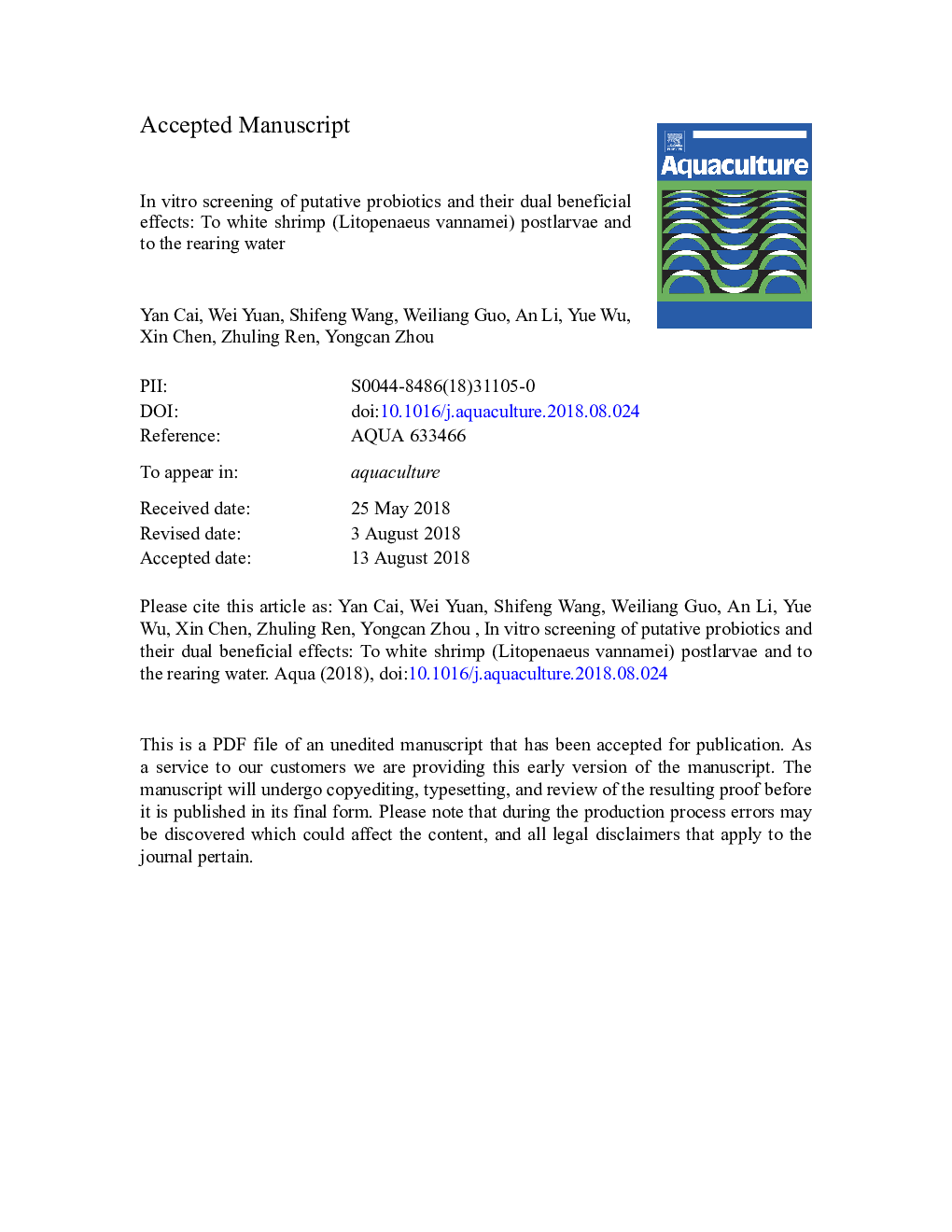| Article ID | Journal | Published Year | Pages | File Type |
|---|---|---|---|---|
| 8950014 | Aquaculture | 2019 | 56 Pages |
Abstract
Shrimp aquaculture has been severely threatened by vibriosis. Traditional methods to combat Vibrio diseases with antibiotics and chemotherapeutics have been discouraged due to their potential negative consequences. The aim of this study was: firstly screen potential probiotics using in vitro assays; then evaluate the beneficial effects of the screened probiotics in Litopenamei vannamei postlarvae by in vivo feeding experiments. Pre-screening of 12 candidate probiotics based on criteria such as extracellular enzyme production, haemolytic activity, tolerance to bile salt, tolerance to gastrointestinal stress, inhibitory activity against Vibrio pathogens, cell surface hydrophobicity and autoaggregation resulted in two potential probiotic isolates: LS-1 and LD-1. Both isolates showed good probiotic characteristics on all criteria above. Biochemical and 16S rRNA sequencing analysis identified LS-1 and LD-1 as Bacillus licheniformis and Bacillus flexus, respectively. In vivo feeding experiments with LS-1, or LD-1, or LS-1â¯+â¯LD-1 as dietary supplementation demonstrated that both strains could effectively enhance the growth, innate immune enzyme activities, digestive enzyme activities, stress tolerance and disease resistance of L. vannamei. In addition, both strains also illustrated water quality improving effects in the probiotic supplement feeding experiments. This is one of the few reports of Bacillus probiotics that display dual beneficial effects: both to the host and to the rearing water. Results from this study demonstrated that Bacillus licheniformis strain LS-1 and Bacillus flexus strain LD-1 are promising probiotic candidates to provide multiple benefits for shrimp rearing.
Related Topics
Life Sciences
Agricultural and Biological Sciences
Aquatic Science
Authors
Yan Cai, Wei Yuan, Shifeng Wang, Weiliang Guo, An Li, Yue Wu, Xin Chen, Zhuling Ren, Yongcan Zhou,
